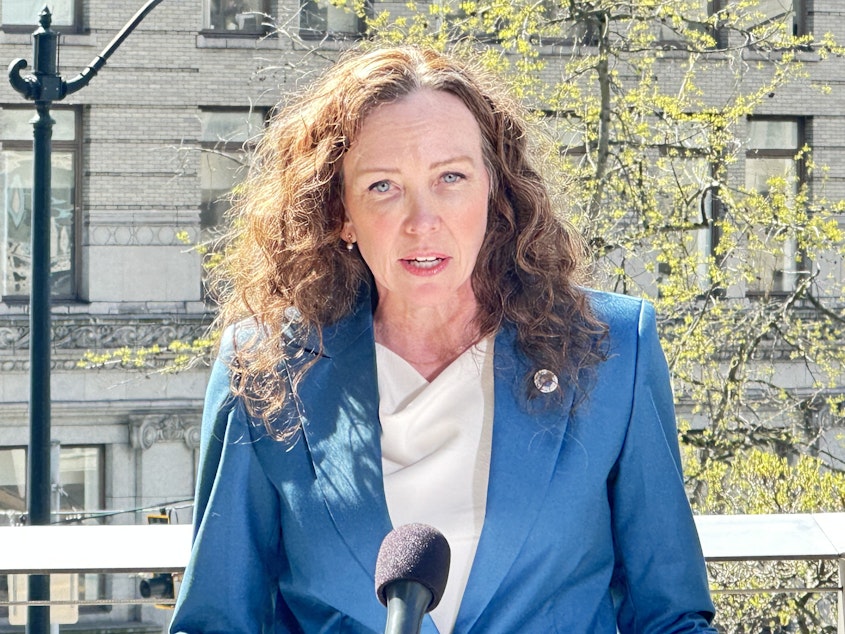Seattle City Attorney Ann Davison says she's not leading new 'war on drugs'

Seattle’s addiction crisis takes center stage at City Hall on Tuesday, as council members debate how to enforce a new state-level law that includes harsher penalties for public drug use and possession.
City Attorney Ann Davison wants her office to prosecute people arrested for drugs in Seattle under this law.
"For the past two years, it's been de-facto decriminalization here," she told KUOW's Morning Edition host Angela King. "So, what we're doing is acknowledging that that is not the way to go forward."
The City Council is considering an ordinance to align Seattle's municipal code with a new state law, which makes possessing small amounts of substances like fentanyl and methamphetamine a gross misdemeanor.
This law is the latest step in Washington's effort to regulate simple drug possession. Two years ago, the state Supreme Court struck down felony drug possession, and the state Legislature passed a stopgap measure making simple possession a misdemeanor. That temporary law, which expires this summer, was never aggressively enforced.
The state's new law, which carriers more jail time and larger fees than the stopgap measure, also encourages authorities to send more people into programs, like drug treatment or other diversion measures that are designed to keep people out of the criminal justice system.
But Davison's critics say Seattle does not yet have capacity to divert people into those services.
Sponsored
Davison's request — for the city to conform with the new state law and to give her office the authority to prosecute drug crimes — has been compared to the nation's so-called "war on drugs" policy. That policy prioritized jailing drug users, often people of color, and failing to solve underlying issues that lead to drug addiction.
Councilmember Tammy Morales says the new law will have "deadly consequences" for people struggling with addiction and that it will send a disproportionate number of Black, brown and unhouse people into the criminal justice system.
Councilmember Kshama Sawant also criticized the new law, saying, in part, that "half a century of the failed 'war on drugs' has proven one thing; criminalization of addiction will absolutely not address the nation's raging opioid crisis."
The Seattle Times published an op-ed this week that asked, "If we can agree the war on drugs was a destructive failure, why would we think a redux would yield a better result?"
Davison rejects these comparisons.
Sponsored
"This is not a return to war on drugs," she said. "It is about how do we get individuals into treatment and how do we make our public spaces safer."
She pointed to the city's relatively hands-off approach to drug possession the past two years.
"As you go down our sidewalks and on our buses and in our parks, you can see what we've been doing hasn't been working. This is a tool that we need to help people get into treatment, and to make our public spaces safer," Davison said.





